CBS News
-
2:58Fighting ISIS: Former CIA deputy director on call to send U.S. troops to Iraq, Syria
-
2:01Headlines at 8:30: Kanye West demands fans at Sydney concert to stand up, including two in wheelchairs
-
2:13Rx excess: Millions of kids get unneeded prescriptions, study shows
-
5:07Former Steelers coach Bill Cowher on domestic violence in NFL
-
2:16Pope Francis show progressive views in leading group wedding at Vatican
-
3:01Martha Stewart defends her lifestyle empire, criticizes Gwyneth Paltrow
-
2:17Apple CEO Tim Cook on how his company differs from Google
-
1:26Eye Opener at 8: NFL Players Association appealing Ray Rice's suspension
-
3:11Oncologist accused of poisoning lover and coworker's coffee
-
0:45Wedding photo found among 9/11 debris returned to owner
REUTERS/Saul Loeb/Pool
US President Barack Obama delivers a live televised address to the nation on his plans for military action against the Islamic State, from the Cross Hall of the White House in Washington September 10, 2014.
President Barack Obama would seek to overthrow the regime of Bashar al-Assad if American planes were attacked upon entering Syrian air space, Peter Baker of The New York Times reports .
If Assad's troops f ired at American planes entering Syrian airspace, "Obama said he would order American forces to wipe out Syria’s air defense system," Baker reports. "He went on to say that such an action by Mr. Assad would lead to his overthrow, according to one account."
On Wednesday, Obama announced that he had authorized US airstrikes in Syria while laying out a four-part strategy to "destroy" and "eradicate" radical ISIS militants who have captured roughly a third of Syria and a third of Iraq.
Since August, US warplanes have backed Iraqi soldiers, Kurdish peshmerga fighters, and Iranian-backed Shia militiamen as they attempt to roll back ISIS gains in Iraq.
Baker, who spoke with 10 people who spoke to the president leading up to his speech on Wednesday, writes that Obama " struck his guests as less certain about the endgame on the Syrian side, where he has called for Mr. Assad to step down and must now rely on the same moderate Syrian rebels he refused to arm in the past."
Syrian rebels associated with the Western-backed Free Syrian Army (FSA) have scoffed at Obama's plan, saying that it rushes to target ISIS while ignoring Assad.
"I don't really understand this sudden fuss about ISIS," one FSA fighter told The Guardian. "They killed people, but Bashar has been killing for the last three years. But nobody seems to be interested in that anymore."
Opposition fighters note that simply bombing ISIS will not stop the criminal army and that a comprehensive plan is needed to deal with both ISIS and Assad.
"Instead of bombing ISIS from the air, we need support inside Syria to fight. It's the only way," Mohammed Al Bakhour, 31, a senior commander of an Aleppo-based FSA battalion, told the Guardian . "Once Assad is gone, we'll deal with ISIS ourselves."
Mike Nudelman/Business Insider
It's unclear if the US would protect what it calls "the legitimate opposition" near Aleppo, Syria's largest city and the last place that the FSA has a significant foothold. FSA-aligned revolutionaries are currently fighting for their survival as ISIS and Assad attack them from all sides.
Helping FSA rebels against Assad's warplanes would force Obama to get involved in " somebody else's civil war " while putting American planes in the sights of Syrian planes and air defense systems.
"From everything the administration has said and leaked to the press, we know that it will not offer the FSA any meaningful protection from the Syrian Air Force’s punishing aerial assaults, either in the form of a no-fly zone or shoulder-launched surface-to-air missiles," journalist Michael Weiss writes in Now . " This means that the same rebels who ... were already fighting six different enemies in Syria will only be equipped to carry on fighting one. So what happens if Assad continues to bomb America’s half-a-billion-dollar counterterrorism proxy force?"
The New York Times editorial board argues that without significant strengthening of Syrian rebels, " there is no chance the fight against ISIS can be successful."
And then there is the hovering question of Assad.
The Obama administration has argued that US airstrikes on ISIS positions wouldn't help Assad because he has lost legitimacy in the areas currently under ISIS control. But without a strong nationalist opposition — which both Assad and ISIS are trying to destroy — the Syrian regime stands to gain from airstrikes on ISIS.
"Assad is the far stronger player in Syria; hitting ISIS necessarily helps him consolidate power," geopolitical expert Ian Bremmer told Business Insider in an email. "That’s a cause and effect that the US is trying to avoid, but it’s the reality."


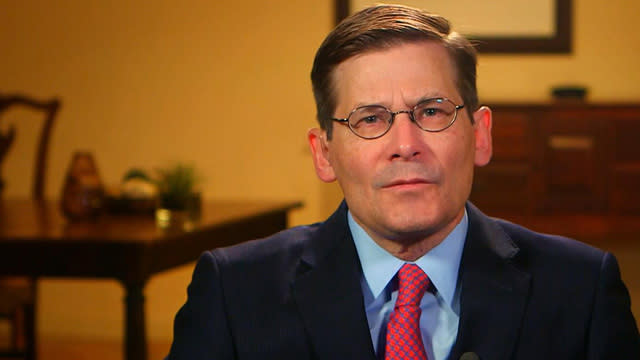

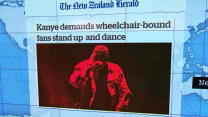

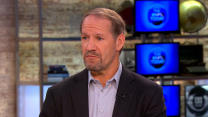
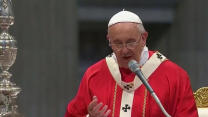




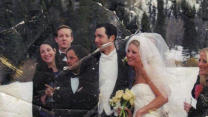
0 comments:
Post a Comment